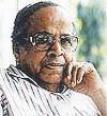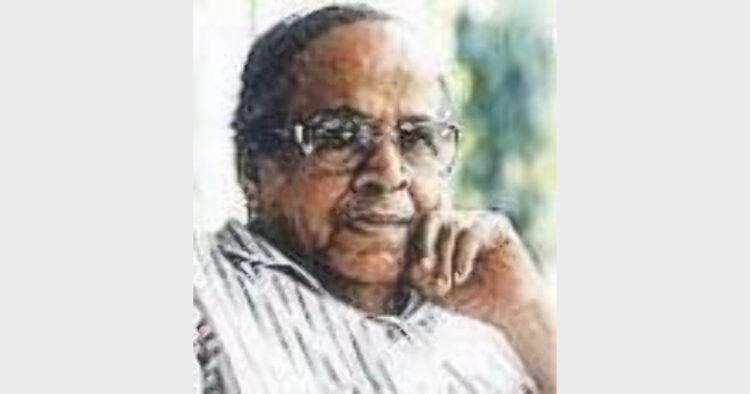We should have real Indian Lit. Fest.?
By Dr Jay Dubashi
 Let me return to the fiasco called “Jaipur Literary Fest” which played out in the pink city at a time when not much was happening elsewhere in the country. It made headlines because of a man called Salman Rushdie and a novel he wrote twenty five years ago. This must have pleased Rushdie no end, assuming, of course, he was sober enough, in a figurative sense, to pay attention to all the ballyhoo created by his absence in Jaipur. I have a sneaking feeling that all this was orchestrated by some PR people, and since Rushdie himself is an old advertising man, he may have lent a hand. On the other hand, Rushdie is also an honourable man and is unlikely to have stooped so low, but, in such cases, you cannot really be sure.
Let me return to the fiasco called “Jaipur Literary Fest” which played out in the pink city at a time when not much was happening elsewhere in the country. It made headlines because of a man called Salman Rushdie and a novel he wrote twenty five years ago. This must have pleased Rushdie no end, assuming, of course, he was sober enough, in a figurative sense, to pay attention to all the ballyhoo created by his absence in Jaipur. I have a sneaking feeling that all this was orchestrated by some PR people, and since Rushdie himself is an old advertising man, he may have lent a hand. On the other hand, Rushdie is also an honourable man and is unlikely to have stooped so low, but, in such cases, you cannot really be sure.
The gang behind the Jaipur fest must have gone home as pleased as punch. They got free publicity, which is like oxygen to such jamborees. It does not matter that very few Indian writers attended the mela, but that should not be much of a worry for the organisers. Who cares for Indian writers anyway? By Indian writers I mean Indians who write in Indian languages – Marathi, Bengali, Tamil, etc, and not English. To me, sixty five years after Independence, English is a colonial language, not an Indian one, for it is used mainly by those who are still obsessed by the Raj, and whose mindset is colonial. These people write essentially for non-Indians, particularly those in London, Oxford or Cambridge, that is, English audiences who still look down on Indians and are patronising towards them. It is for them that the Rushdies and the Naipauls and Arundhati Roys write, for if they are accepted by them, they are automatically accepted by the remnants of the Raj in India.
The real Indian writers write for Indians, just as real Hindi writers write for Hindi readers, not for Indians living in London or Washington. I don’t therefore consider Rushdie or Naipaul as Indian writers, though there may be something of India in their writings. In fact, I do not think that Rushdie or Naipaul consider themselves as Indians, though we may do so. They are no different from foreign writers writing about India for foreign readers, for whom India is an exotic country of turbaned men and women living on the edge of jungles, first popularised by Rudyard Kipling and then, in a more sophisticated way by the likes of EM Forster who, like Kipling, spent some time in India and was perhaps more sympathetic towards Indians than the full-blooded imperialist Kipling.
Why has Indian writing become so popular in the West at a time when most Nobel prizes go to non-Indians? There is a reason for it. The West has become a dull place and has been done to death. How many times are you going to read about fish and chips in Bermandsey or roast beef in Yorkshire? They have been reading about it for years – probably decades and centuries – and nobody has much appetite for it anymore. The publishers are looking for exotic stuff-palaces in Rajasthan, curried rice and chapattis in houseboats on the Dal Lake, and lore-making in Mahabalipuram. This is the stuff for jaded appetites, for whom the Western stuff is passé. Publishers want to sell their books and make money – and probably retire in Spain or Bermuda – and for whom India is spectacular as well as exotic, even if the writers are a poor lot. So they are looking for Kunzrus and Rushdies, and will soon start looking for other fancy names, of which there is no shortage in a land of 1.3 billion souls.
They are fed up with Smiths and Joneses and Pauls and Penelope, and the rides in Switzerland and Italian Alps, something the Western readers do every summer. Take them for a change to Mysore and Kanyakumari and they wouldn’t mind shelling out few more dollars or pounds in their kitty with a holiday in Kolkata thrown in.
Real Indian writers, those who write in their own language, do not much care about what foreigners say about their stuff. On the other hand, the Naipauls and the Rushdies do. After all, they make their pile in London and Washington and New York, not in Mumbai or Kolkata and Jaipur. Hence their tremendous inferiority complex vis-à-vis the West. Naipaul married an English girl and so did Rushdie (who also married an Indian girl who promptly dumped him), one way of getting close to Westeners. They wrote for Western newspapers and magazines, something Indian writers cannot do, for obvious reasons. The literary careers of “Indian” writers like Naipaul and Rushdie depend entirely on what Western critics say about them.
On the other hand, the literary careers of truly Indian writers depend on their Indian readers, Indian critics and Indian audiences. To me, they are genuinely Indian writers, while the Naipauls and the Rushdies are what I call “Raj” writers, carrying huge inferiority complexes in their swollen heads, and worried more about what the critics in London say about them than their readers in India. Their readers are essentially “Raj” Indian – Indians who still live in the Raj, who affect a false British accent and who prefer fish and chips to nargis kofta for lunch. These are still thousands, possibly millions, of them in India, colonial men with colonial tastes, who still live, mentally at least, in the India of ‘koi hai’ and who still pine for ginger-haired British colonels in topis and for whom time stopped in 1947.
It is these people, and people like them, who attend Jaipur festivals, waiting for Rushdie and Naipaul and other faded colonials, ignoring the real India around them. It is not surprising that most Indian language newspapers ignored Jaipur, although the English language newspapers, read mostly by Raj Indians, lapped it up. This is what happens to those with colonial minds – they cannot distinguish between the real and the false, and who are unsure about their own identity. It is tragic but also funny that we should still have such people in our midst after sixty years of freedom, but what is freedom to people whose minds are still enslaved by the past?
We should have real Indian literary festivals, consisting of real books published here in India, and not in some God-forsaken place in England or America, books by real Indian writers, and not some émigré’s like Rushdie, and real Indian authors rooted in this soil, writers who write and speak their own language and not the borrowed lingo of some foreign land. A society is not really free unless it is culturally free and it cannot be culturally free until it frees itself from its colonial hangover. We are still mentally a colony, which is why, after more than half a century of so-called freedom, we continue to put up with a foreigner running the country!














Comments